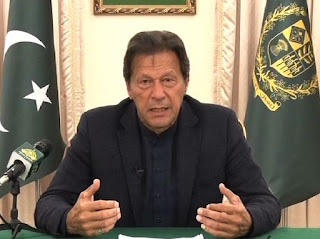More money for the military?
A senior defence ministry official - an air-vice marshal - briefed the Senate's Defence Committee on May 19 about the budgetary needs of the military. The official somewhat disingenuously told the Senate committee that Pakistan was the lowest spending on defence in the entire region and the figure he quoted to substantiate this claim was that Pakistan spent around $8,400 per soldier while India spent roughly three times that per soldier. A more accurate measure of comparison would be defence spending as a percentage of GDP which in Pakistan's case is 2.6 per cent of GDP compared to India's 1.8 per cent. Similarly, Pakistan spends $35.4 per capita on defence compared to India which spends $29.9.
One is not sure whether any of the Senators present in the committee hearing could figure that what they were being told was not entirely true and that Pakistan does spend far more on defence than it should be given the size of its economy, GDP per capita and low human indicators. The official -- perhaps inadvertantly -- also told the Committee that military pensions had now reached Rs 100 billion per year and that this figure was paid out of the civilian budget. This means that the real defence budget for 2013-14 is not $6.37 billion as publicly admitted in official statistics and budget documents but around $7.4 billion, thereby making the official's claim that Pakistan spends the least on defence in the region even less credible.
And now on to those who cry hoarse and paint anyone who asks such questions or point out such discrepancies with the label of 'anti-state' and/or 'anti-national'. The defence budget is paid out of public funds and this is taxpayers money and hence the public has a constitutionally guaranteed right to know how this money is spent. At one point in the briefing, the Defence Ministry official was asked by some senators about the size of the ISI budget and whether it was audited and he declined to give any details. While it is true that the size of the budget for intelligence agencies the world over is not a publicly known figure, it is however shared with members of parliament -- which is precisely a reflection of the fact in mature democracies of parliament being sovereign. In Pakistan's case, it would be fair to say that this detail is not shared with MPs except perhaps with the defence minister and the prime minister.
The other issue that is raised by apologists for yet more military spending has to do with the fallacy which says that a lot more funds could be freed up in the budget for health and education if the budgets used for these sectors was used more efficiently and if there was less corruption. This ignores the fact that there is corruption in all sections of the government, not just civil, and further the inescapable reality that a country like Pakistan needs to be spending far more than it currently does on health and education, and that this extra money is not going to come from simply utilizing the existing budget for either more efficiently.



Comments
Post a Comment